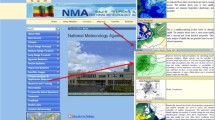Abstract
The leaders and authors of the Third US National Climate Assessment (NCA3) developed new modes of engaging academia, the private sector, government agencies and civil society to support their needs for usable, rigorous, and timely information and better connect science and decision-making. A strategic vision for assessment activities into the future was built during the NCA3 process, including recommendations on how to establish a sustained assessment process that would integrate evolving scientific understanding into decision making to manage the risks of climate change over time. This vision includes a collaborative assessment process that involves partnerships across a diverse and widely distributed set of non-governmental and governmental entities. The new approach to assessments would produce timely, scientifically sound climate information products and processes, rather than focusing on the production of single quadrennial synthesis reports. If properly implemented, a sustained assessment would be more efficient and cost-effective, avoiding the painful and time-consuming process of beginning the assessment process anew every 4 years. This ongoing assessment would also encourage scientific and social innovations and explore new insights and opportunities, building the capacity to advance the development and delivery of climate information to meet societal requirements and benefit from scientific opportunities.
Similar content being viewed by others
References
Buizer JL, Fleming P, Hays SL, Dow K, Field CB, Gustafson D, Luers A, Moss RH (2013) Report on preparing the nation for change: Building a sustained national climate assessment process. Committee, National Climate Assessment and Development Advisory
Bierbaum R, Lee A, Smith J, Blair M, Carter LM, Chapin III FS, Fleming P, Ruffo S, McNeeley S, Stults M, Verduzco L, Seyller E (2014) Ch. 28: Adaptation. Climate change impacts in the United States: The third national climate assessment, Melillo JM, Richmond TC, and Yohe GW, eds., U.S. Global Change Research Program, pp. 670–706. doi:10.7930/J07H1GGT
Global Change Research Act of 1990. Public Law 101-606 [S. 169]; November 16, 1990, 104 Stat. 3096-3104
Karl, TR, Melillo JM, Peterson TC, eds. (2009) Global climate change impacts in the United States: 2009 Report, Cambridge University Press. 188 p. http://nca2009.globalchange.gov/download-report
Melillo JM, Richmond TC, Yohe GW, eds. (2014) Climate change consequences in the United States: The third national climate assessment, U.S. Global Change Research Program, 841 pp.
National Assessment Synthesis Team (2000) Climate change impacts on the United States: The potential consequences of climate variability and change, report for the US global change research program. Cambridge University Press, Cambridge UK, 154 pp.
National Assessment Synthesis Team (2001) Climate change impacts on the United States: The potential consequences of climate variability and change, report for the US global change research program. Cambridge University Press, Cambridge UK, 620 pp.
National Research Council (2007) Board on atmospheric sciences and climate. In: Analysis of global change assessments: Lessons learned. National Academies Press, Washington
National Research Council (2009) NRC Committee on Strategic Advice on the U.S. climate change science program. Restructuring federal climate research to meet the challenges of climate change. National Academies Press, Washington
National Research Council Council NR (2010) NRC panel on informing effective decisions and actions related to climate change, informing an effective response to climate change. National Academies Press, Washington
National Science Technology Council (2012) National global change research plan 2012–2021: A strategic plan for the U. S. Global Change Research Program http://downloads.globalchange.gov/strategic-plan/2012/usgcrp-strategic-plan-2012.pdf
USGCRP (2003) Strategic plan for the US Global Climate Change Science Program, at http://www.globalchange.gov/about/strategic-plan-2003/2003-strategic-plan
USGCRP (2010a) In: The United States National Climate Assessment NCA report series, vol 1: Midwest Regional Workshop: Feb. 22-24, 2010, Chicago. Illinois, USGCRP
USGCRP (2010b) The United States National Climate Assessment NCA report series, vol. 2: Strategic Planning Workshop. USGCRP
USGCRP (2011) Information Quality Principles, at http://www.globalchange.gov/sites/globalchange/files/Information-Quality-Principles-Draft_2011-11-16.pdf
Waple, A. (submitted for this issue) Innovations in Information Management and Access for Assessments. Climatic Change
Acknowledgments
The authors are grateful for important suggestions made by the reviewers, who suggested a number of important improvements.
Author information
Authors and Affiliations
Corresponding author
Additional information
This article is part of a special issue on “The National Climate Assessment: Innovations in Science and Engagement” edited by Katharine Jacobs, Susanne Moser, and James Buizer.
Rights and permissions
About this article
Cite this article
Buizer, J.L., Dow, K., Black, M.E. et al. Building a sustained climate assessment process. Climatic Change 135, 23–37 (2016). https://doi.org/10.1007/s10584-015-1501-4
Received:
Accepted:
Published:
Issue Date:
DOI: https://doi.org/10.1007/s10584-015-1501-4



